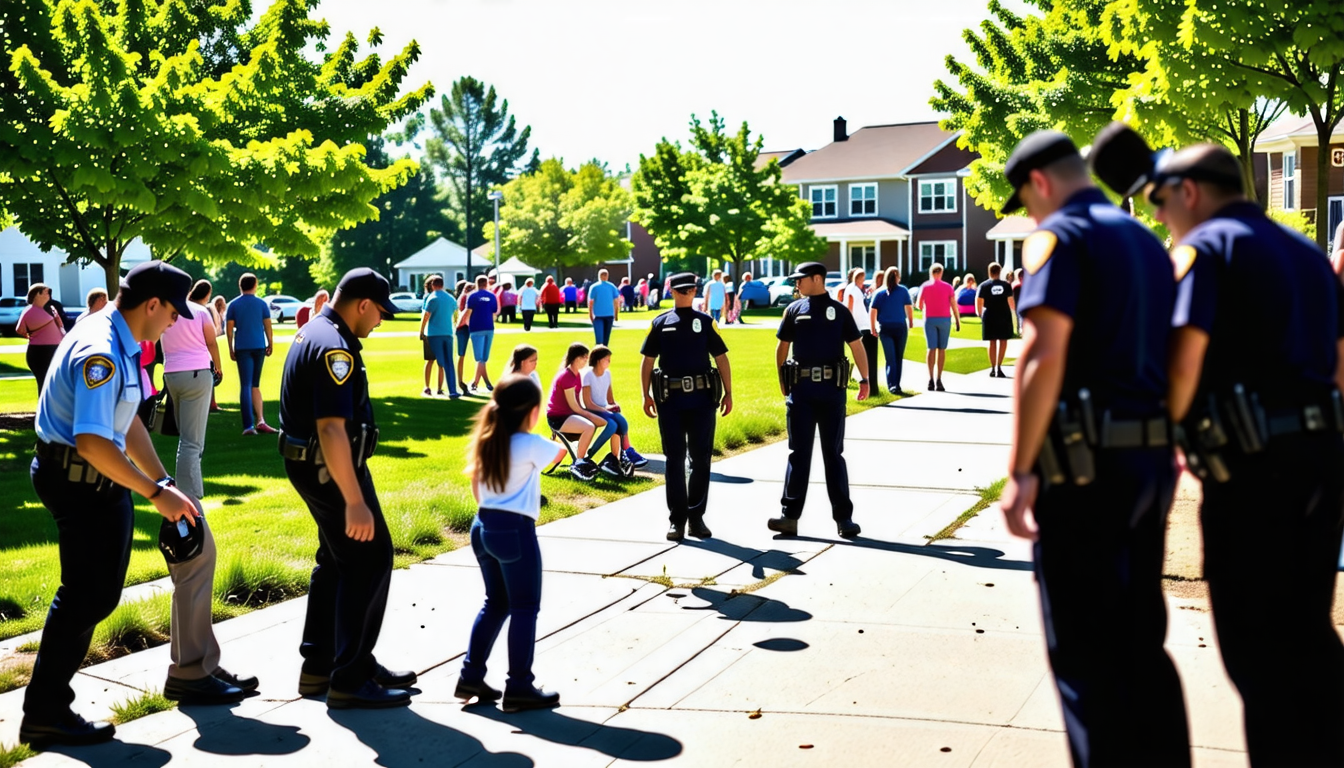|
IN BRIEF
|
In today’s fast-paced world, the roads are a bustling hive of activity, making traffic violations an inevitable reality for many drivers. Understanding the procedure for handling these infractions is crucial, as it equips individuals with the knowledge to navigate both the legal system and interactions with law enforcement. When a driver finds themselves pulled over, the steps that follow can determine not only the outcome of the encounter but also any subsequent legal ramifications. From the initial traffic stop to potential court appearances, familiarity with the process can help demystify the experience and alleviate anxiety. This understanding not only empowers drivers but also promotes a culture of safety and respect on the road, fostering a better relationship between the community and its police officers.
Traffic violations, whether they are minor infractions or major offenses, are an unavoidable part of road usage. When a driver is pulled over for a violation, there are specific procedures law enforcement follows. Understanding these procedures can help both drivers and officers facilitate a smoother interaction during traffic stops.
Final Considerations
Understanding the procedures surrounding traffic violations is paramount for both drivers and law enforcement. As drivers navigate their responsibilities on the road, adherence to traffic laws not only ensures their safety but also contributes to broader public safety. For police officers, executing their duties effectively is essential in maintaining order and upholding justice on our roadways.
The involvement of legal professionals can also help navigate the complexities of the court system. From handling tickets to understanding the ramifications of traffic violations, seeking legal counsel can provide guidance when faced with the possibility of court appeared charges.
Comprehending the intricacies of the traffic violation process from a police perspective, as well as a driver’s standpoint, illuminates the importance of legal and procedural knowledge in fostering safer communities on the road.
For further information regarding how traffic court functions, you may explore this resource here.
Documentation and Communication
After stopping a vehicle, the officer will typically request the driver’s license, registration, and proof of insurance. These documents are essential for the officer to determine the validity of the driver’s ability to operate the vehicle legally. This process can involve a brief verbal exchange where the officer explains the reason for the stop.
Drivers should be respectful and cooperative. If there’s any dispute about the traffic violation, it is beneficial to remain calm rather than confrontational. Rudeness or aggression can lead to escalated situations that complicate the officer’s duties and your case.
Understanding the Officer’s Notes
During the stop, officers often take notes to document their observations and the event’s specifics. These notes become significant if the situation proceeds to traffic court. Obtaining a copy of the officer’s notes can aid in establishing a defense against a ticket. This step is crucial for understanding the evidence against you and forming a strategy for contesting the citation. Comprehensive insights into this process can be found here.
Understanding the procedure for traffic violations handled by police is crucial for both law enforcement and the public. In many jurisdictions, including Washington State, the process begins when an officer issues a citation for speeding or other violations. The officer is responsible for documenting pertinent details, which can later be critical in court. Research indicates that about 70% of individuals who contest a ticket do so based on discrepancies in the officer’s notes [Source].
Moreover, once a ticket is issued, the prosecuting authority bears the burden to prove the infraction. This means presenting evidence and calling the officer to testify. Statistically, over 50% of contested traffic tickets can result in a plea bargain, proving that proper representation and knowledge of court procedures can significantly influence outcomes [Source]. It is essential for defendants to approach court with a clear understanding of their rights and responsibilities, ensuring they don’t unintentionally compromise their case.
When it comes to handling traffic violations, understanding the procedure followed by police is essential for every driver. During a traffic stop, it’s crucial to remain calm, comply with police requests, and gather relevant information, which could be helpful if you choose to contest a ticket later. Obtaining the officer’s notes is a key step in building your defense. Knowing how traffic court operates can also significantly impact the outcome of your case. In court, the burden of proof lies with the prosecution, and a thorough understanding of your rights and the legal process can provide leverage when negotiating penalties or disputing tickets. Awareness of these legal intricacies can empower individuals to navigate traffic violations with confidence.
FAQ
What should I do during a traffic stop?
R: When pulled over, safely pull your vehicle to the side of the road. Keep your hands visible and wait for the officer to approach. Follow their instructions calmly and provide necessary documents like your license and registration.
How can I obtain the police officer’s notes for my traffic ticket?
R: You can request the officer’s notes either through your attorney or directly from the local police department. It’s crucial to do this before your court date for an effective defense.
What occurs during a traffic court appearance?
R: In traffic court, the prosecuting authority presents evidence first, aiming to prove the infraction. Both sides will present their case, and the officer will testify if necessary.
What actions should be avoided when dealing with a traffic ticket?
R: You should avoid panicking, pleading guilty without understanding your options, and being disrespectful to court staff. Staying calm and informed is essential.
What are the potential outcomes of contesting a traffic ticket?
R: Contesting a traffic ticket can result in various outcomes including dismissal of the ticket, reduction of fines, or even a not guilty verdict if sufficient evidence is presented.
